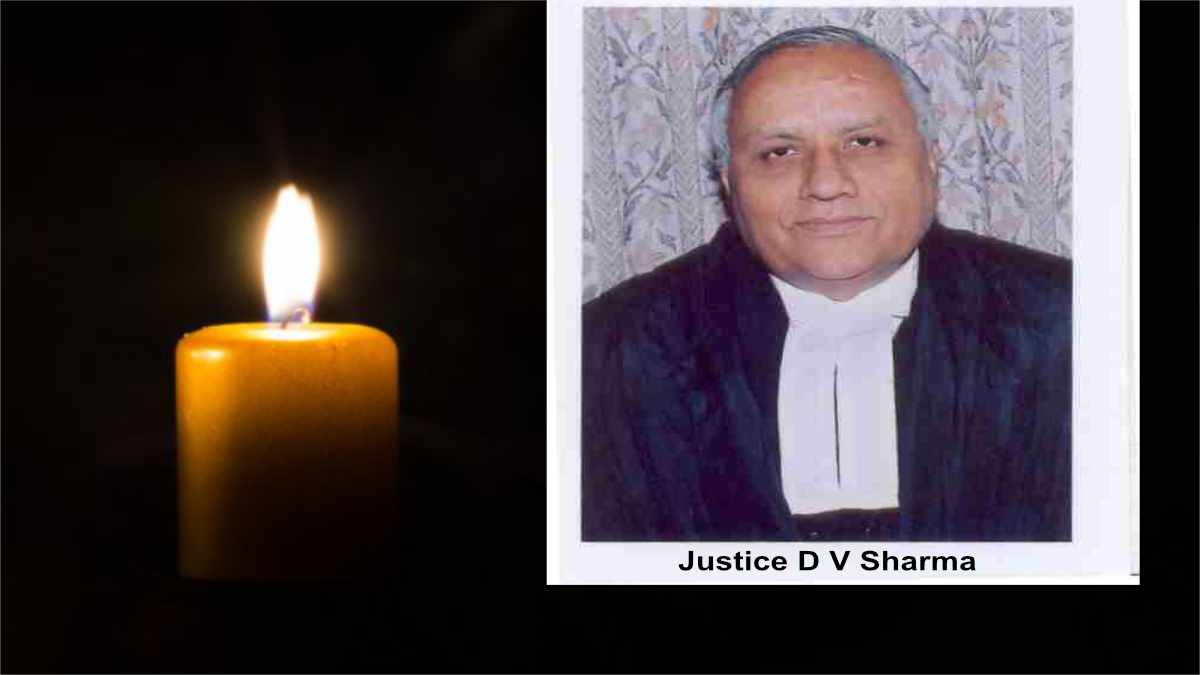Prayagraj, 07 May: Justice Dharamvir Sharma, who was on the bench of three judges in the historic judgment of Lucknow Bench of Allahabad High Court on September 30, 2010, on the Ram Janmabhoomi dispute of Ayodhya, passed away on Friday. After retiring, he was living in Lucknow with the family. He had been ill for the last few days.
Justice Dharamvir Sharma was born on October 02, 1948 in a farmer family in Ballia district of Uttar Pradesh. After earning a law degree in 1970, Justice Sharma served in the posts of Chief Law Officer and Assistant Judicial Secretary in Uttar Pradesh.
In the year 2002, he was appointed as District and Sessions Judge. He served as Principal Judicial Secretary in the Government of Uttar Pradesh from August 2003 to August 2004.
He was appointed to the Allahabad High Court as Additional Judge in the year 2005 and was sworn in as a permanent Judge of the Allahabad High Court in September 2007. Justice Sharma retired from his post on October 01, 2010.
Justice Sharma’s opinion differed from that of the two judges in the full bench of the three judges formed by the order of the Chief Justice to decide the Ram Janma Bhoomi dispute.
Justice Sharma was of the opinion that the entire disputed premises should be given to Hindus.
Justice DV Sharma, who was part of the three-member bench of the Allahabad High Court, which gave its verdict on Ayodhya’s Ram Janmabhoomi dispute on September 30, 2010, differed from the other two justices SU Khan and Sudhir Aggarwal.
Justice Sharma had given his separate opinion saying that the disputed campus is the birthplace of Lord Rama. At this site, the Mughal ruler Babur broke the temple and built the mosque. This is clear after the trial of the mosque located in the campus, so the entire disputed campus should be given to the Hindus.
In his judgment, Justice Dharamvir Sharma had said that the disputed site is the birthplace of Lord Rama. This place reflects the divine spirit of Lord Rama’s childhood. Every person has the right to meditate on them in any form. The disputed building was built by Babur. The disputed structure was built at the same place by demolishing the old structure. Evidence provided by the Archaeological Survey of India has proved that the structure was a huge religious place for Hindus.
In the middle dome of the disputed structure, statues were placed on the night of December 22–23 1949. It has been proved that the outer complex of the disputed site was also occupied by Hindus. The disputed structure cannot be considered a mosque, as it was built against the principles of Islam.
The Chief Minister of the state Yogi Adityanath has expressed deep condolences on the death of Justice Dharam Veer Sharma. Wishing peace to the departed soul, he has expressed condolences to the bereaved family.





